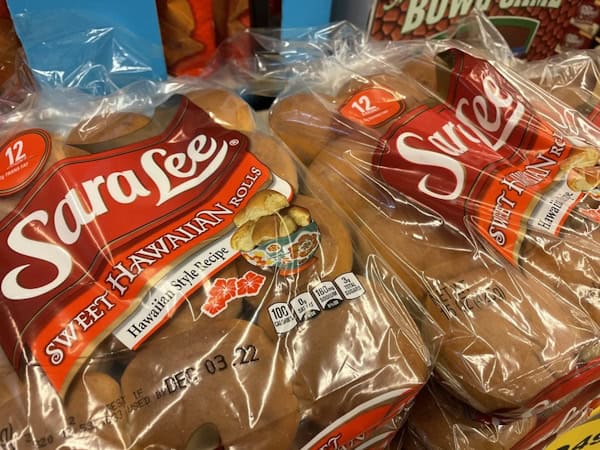
Federal food safety regulators said Tuesday that they have warned a top U.S. bakery to stop using labels that say its products contain potentially dangerous allergens when they don’t.
U.S. Food and Drug Administration inspectors found that Bimbo Bakeries USA — which includes brands such as Sara Lee, Oroweat, Thomas’, Entenmann’s and Ball Park buns and rolls — listed ingredients such as sesame or tree nuts on labels even when they weren’t in the foods.
Under FDA regulations, such products are “misbranded,” FDA officials said in a warning letter sent to officials at the company’s Horsham, Pennsylvania, headquarters earlier this month.
“Food labels must be truthful and not misleading,” officials said. The warning followed inspections late last year at Bimbo plants in Phoenix, Arizona, and Topeka, Kansas, that make Sara Lee and Brownberry breads.
In addition, FDA officials indicated that allergen labeling is a “not a substitute” for preventing cross-contamination in factories.
Advocates with the nonprofit group FARE, Food Allergy Research & Education, said such labeling “does a disservice” to the estimated 33 million people in the U.S. with food allergies. Those consumers have to be constantly aware of foods that can cause potentially life-threatening allergic reactions, said Sung Poblete, FARE’s chief executive.
“Our community relies on accurate product labeling for their health and safety,” Poblette said in an email. “These findings about Bimbo Bakeries’ products undermine their trust and further limit their choices.”
Bimbo, a Mexico City-based food giant, bills its U.S. operations as the largest commercial baking company in the country. In an email, company officials said they “take their role in protecting consumers with allergen sensitivities very seriously” and that they are corresponding with FDA to resolve the issue.
Concerns over labels at Bimbo and other companies followed a law that took effect in 2022, which added sesame to the list of major allergens that must be listed on packaging.
Because it can be difficult and expensive to keep sesame in one part of a baking plant out of another, some companies began adding small amounts of sesame to products that didn’t previously contain the ingredient to avoid liability and cost. FDA officials said that violated the spirit, but not the letter, of federal regulations.
Some companies, including Bimbo, began listing allergens such as sesame on labels as a “precaution” in case of cross-contamination.
FDA officials acknowledged Tuesday that statements that a product “may contain” certain allergens “could be considered truthful and not misleading.” Bimbo officials have until July 8 to identify steps taken to remedy the issue — or to explain why the labeling doesn’t violate FDA standards.
Disclaimer
The information contained in South Florida Reporter is for general information purposes only.
The South Florida Reporter assumes no responsibility for errors or omissions in the contents of the Service.
In no event shall the South Florida Reporter be liable for any special, direct, indirect, consequential, or incidental damages or any damages whatsoever, whether in an action of contract, negligence or other tort, arising out of or in connection with the use of the Service or the contents of the Service. The Company reserves the right to make additions, deletions, or modifications to the contents of the Service at any time without prior notice.
The Company does not warrant that the Service is free of viruses or other harmful components












